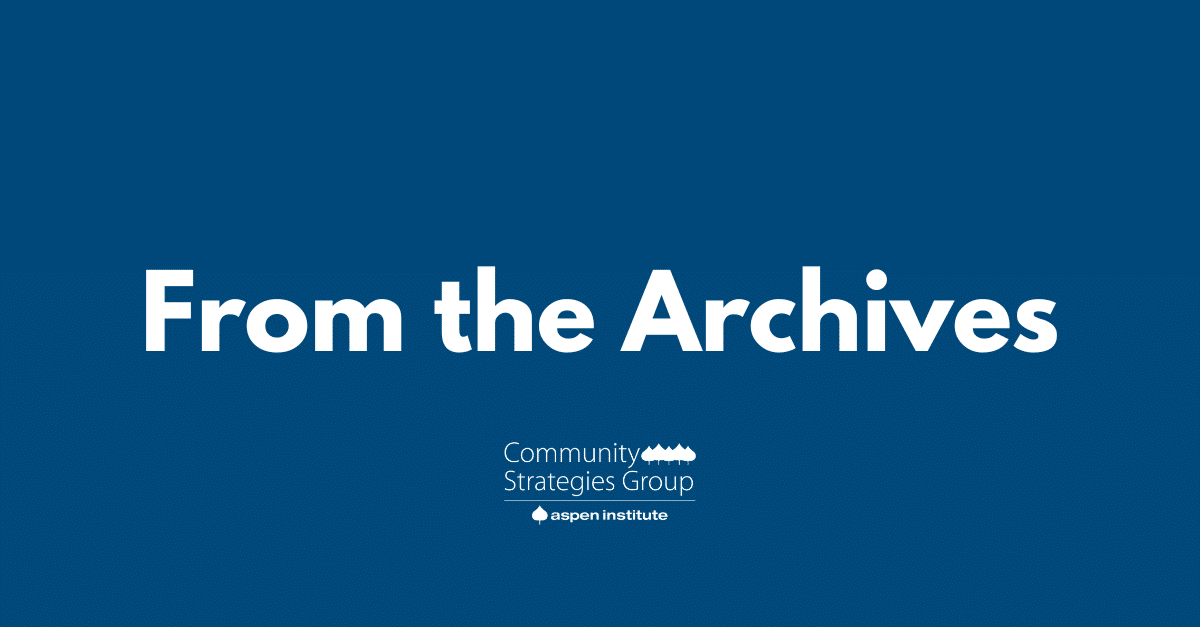View this Publication
This file outlines the Rural Telecommunications Initiative (RTI), a program proposed by the Aspen Institute’s Rural Economic Policy Program in collaboration with The Ford Foundation and MDC, Inc., and submitted to Apple Computer, Inc. on May 4, 1990. Here’s a summary of the key aspects:
- Goal: To enhance communication among rural constituencies and communities, lessen the impacts of geographic isolation, and increase the capacity of rural community-based organizations by providing access to computer and information technology and training.
- Request from Apple: The Aspen Institute requests 200 Macintosh computer systems over two to three years, with 100 in the first year.
- Services: The initiative will offer computer and information technology, training, and a dedicated “Rural Forum” within the HandsNet network. This forum will include electronic mail, a query area, a rural-specific clippings service, alerts, participant listings, information on rural development and infrastructure, an annotated bibliography, a calendar of events, archives, future trends, a database repository, and technical tips.
- Training and Support:
- Initial Training: HandsNet, Inc. will coordinate three-day training sessions for grantees, focusing on Macintosh orientation, Microsoft Works, and telecommunications using HandsNet. These sessions are planned for September 1990 at Apple’s corporate training facility.
- Ongoing Support: MDC, Inc. will provide ongoing technical assistance and manage the network, with a full-time staff person. HandsNet will provide telecommunications support through a toll-free customer line and online assistance.
- Follow-up Training: A longer-term plan will be developed based on grantee skill levels and interests, utilizing resources like community college systems and integrating with conferences.
- Selection Process: Approximately 20% of grantees will be selected strategically, 55% through an application process, and 25% (North Carolina organizations) through a combination of both.
- North Carolina Demonstration: A key component is an intensive state-level demonstration project in rural North Carolina, coordinated by the Center for Community Self-Help (CCSH). 25% of the first year’s equipment grants are earmarked for North Carolina organizations, with a goal to incorporate 200 organizations over three years.
- Information Providers: Formal information providers include The Aspen Institute’s Rural Economic Policy Program, the Rural Community Assistance Program, the Council of State Policy & Planning Agencies, and the Corporation for Enterprise Development. Informal regional information providers will also be developed.
- Participant Engagement: Grantees will be required to post stories at least twice a month, and information providers will regularly post fresh, time-sensitive information to encourage network usage.
- Organization and Staffing: The Aspen Institute (Maureen Kennedy) will administer the initiative, MDC, Inc. (Mary Mountcastle) will facilitate the network and provide technical assistance, HandsNet, Inc. will provide telecommunications support and training, and CCSH will coordinate the North Carolina demonstration.
- Equipment: Most grantees will receive a Macintosh SE computer, modem, Imagewriter II printer, cables, and Microsoft Works and Claris MacPaint software. Facilitators and key information providers may receive more powerful systems and peripherals.
The document also includes an agenda and participant list for an Advisory Committee Meeting held on May 17, 1991, and a memorandum discussing the recommendation for the 1991 RTI Demonstration, evaluating proposals from the Mid-South Foundation, the National Family Farm Coalition/Land Stewardship Project/PrairieFire Rural Action, and Portable Practical Educational Preparation (PPEP), ultimately recommending against a full demonstration for these proposals while suggesting a network application for a sizeable number of computers.








